What we learned about the man known as 'The Monk' through bugged garda conversations and the only television interview he ever gave.
Gerard Hutch does not talk to gardaí. He does not even engage in casual conversation with them.
He does not account for his movements when stopped and did not, when asked, where he was on the day the Kinahan gangster David Byrne was shot dead at the Regency Hotel.
The man known as 'The Monk’ had a prepared playbook for exactly this kind of situation.
"Caution me," he said to gardaí.
"You are not obliged to say anything unless you wish to do so, but whatever you say will be taken down in writing and may be given in evidence," the Garda replied.
The caution informs a suspect of their right to silence.
"You’re after telling me to say nothing," Hutch said.
"No problem," the Garda replied.
There was no point in getting frustrated or annoyed with a clever and streetwise individual like Gerard Hutch.
Hutch outlined this strategy for dealing with unwanted police inquiries to Jonathan Dowdall during their road trip to Northern Ireland on 7 March 2016.
They were under surveillance and the former Sinn Féin councillor's jeep was bugged. Their conversation was recorded by the gardaí.
Hutch explained his strategy to Dowdall. He could not understand why anyone would ever say anything to the police, particularly after they had been told they did not have to.
It was one insight into the mind of a man who has been a senior figure in organised crime in this country for decades.
Hutch may have left school at a young age without any formal qualifications, but he is extremely smart.
He is a highly intelligent man who, through his involvement in the sport of boxing in his community and his public stance against drugs, has embedded himself in the social fabric of Dublin’s north inner city.
Hutch was born into poverty in the area on 12 April 1963. He has always blamed poverty and the absence of any alternatives for his own involvement in criminality.
His first conviction was for stealing a bottle of red lemonade for which he says he was fined. He was eight years old.
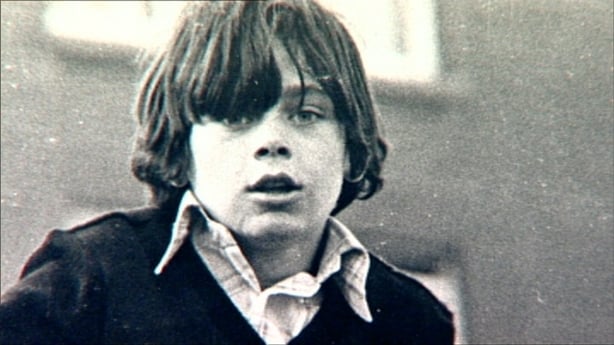
He was sent to prison at 15 after he was caught stealing and breaking into shops.
"I had no choice, you had to get into crime to feed yourself," he said.
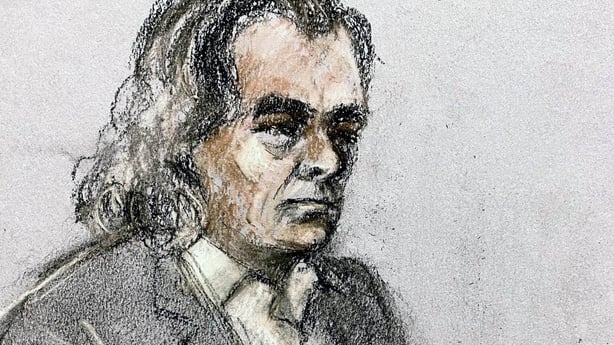
'If one of them gets into trouble, it lands on my door'
Gerard Hutch was always different and somewhat distant from those he grew up with.
He learned to read and write in prison. He did not drink, smoke or take drugs and always claimed to despise drug dealers and the drugs trade.
His nephews however have for years been involved in drugs and crime at all levels; from the lowest level of suffering and death in the throes of drug addiction, to the highest level in one of the world’s wealthiest transnational organised crime groups.
Gerard’s brother Eddie’s son Christopher who was known as 'Bouncer Hutch' died in March 2003 from a heart attack brought on by the toxic effects of cocaine.
Gerard sat beside Eddie on a wooden bench at his nephew’s inquest in the Dublin Coroners Court in January 2005.
Another of Eddie’s sons, Ross Hutch, became the most recent Hutch to be jailed for serious crime when he was sentenced to ten years in prison last month for violent attacks on a man and a woman.
He is perhaps best remembered for his appearance on the RTÉ’s Winning Streak in 2015 where he took the place of his brother Eddie junior and won €33,000, €8,000 in cash and a Toyota Corolla car worth €25,000.
Gerard Hutch’s other nephews Derek ’Dell Boy’ Hutch and Gary were also involved in organised crime, a fact which Gerard has publicly lamented.
"There’s about fifty Hutch’s out there with the same name," he said, "and if one of them gets into trouble, it lands on my door."
Organised crime
In another time and another walk of life, Gerard Hutch could, perhaps, have been a senior manager or a chief executive in a legitimate business.
Those at the highest levels of organised crime often exhibit characteristics and skills which would enable them to also succeed at the highest levels of legitimate business.
Crime bosses are clever and astute. They demand respect. They have very good organisational and leadership skills. They can be charming and charismatic and need to be ruthless.
Many outwardly respectable people get caught up in the world of organised crime, from policemen to politicians, from lawyers to business executives, from journalists to models.
Criminals are always watching for people they can use and abuse. Naïve and apparently law abiding citizens make perfect targets.
People become enmeshed in the criminals' web by borrowing their money, developing a drugs habit (usually cocaine) and/or by entering into a sexual or business relationship with them.
The lifestyle, the money, the trappings, even the violence of organised crime can, to some people at least, appear exciting, intoxicating, glamorous and sexy.
Gerard Hutch was aware of all this. He was aware of the reality of violent paramilitarism and organised crime, that it is a dirty and dangerous business and that no-one is to be trusted.
He also knows that gardaí, the media, the justice system and rival criminals are occupational necessities to be lived with, negotiated with and sometimes co-operated with; tolerated but never trusted.
Organised crime figures are also always on the lookout for ways to legitimise their illegitimate earnings. In that regard Gerard Hutch has been way ahead of them all.
"Hutch realised the CAB settlement enabled him to hold on to some of his ill-gotten gains by legitimising the money he had been allowed to keep"
Criminal Assets Bureau
Hutch invested his money in property over 30 years ago claiming the seed money came from compensation awards.
However, the Criminal Assets Bureau pursued him for unpaid taxes and he ended up paying over £2m (€2.25m) on the proceeds of crime.
Even though it was, and remains one of the biggest CAB settlements ever with a criminal, Hutch the strategist was also a realist.
He realised the CAB settlement enabled him to hold on to some of his ill-gotten gains by legitimising the money he had been allowed to keep.
"They can't leave you in your nude," he quipped afterwards, "you have to meet people halfway."
Hutch had made a deal with the State, out of which, both sides got something.
Gerard Hutch is one of the few in the so-called criminal underworld who has, at least so far, survived 'the jail or the grave’.
Unpredictable killings and murders
One or other is the usual destiny for those who live his kind of life in a place of divided loyalties, untrustworthy friends, unstable adversaries and unpredictable killings and murders.
From early on Gerard Hutch recognised the ambition of his now deadly rivals, the Kinahans, to become a global force in organised crime.
"They made a few quid but they started making big money about two years ago," he said in 2016.
"It's a bit of power as well, not just the money. It's just the bleedin' power as well."
An astute judge of character, Hutch knew the origins of the Kinahan Organised Crime Group and what the individual gang leaders were like.
He also knew where they wanted to go and what to expect from them in terms of criminality.
"They want to be the biggest gang in Europe, the Columbians and all, and everyone come to them", he said.
"They used the rest of the young fellas. Daniel was a wide enough twist and do this and do that and everyone was full of promises."
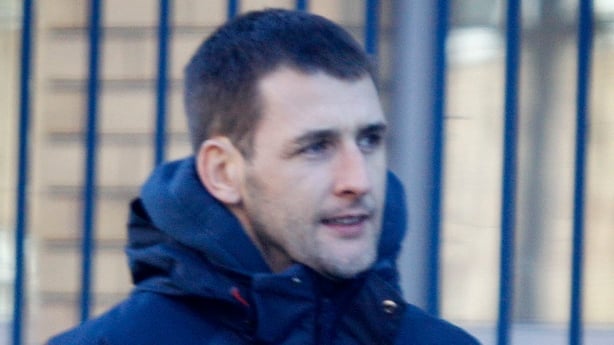
Ongoing feud
But it was Hutch’s younger, ambitious and impetuous relations who dragged the family into the ongoing feud with the Kinahans which has so far led to the deaths of 18 people in Ireland and Spain.
Hutch’s nephew Gary had been for years one of the senior figures in the Kinahan Organised Crime Group.
An armed robber and drug dealer, he was also a feared gunman.
Gary Hutch shot the violent and dangerous criminal Paul "Dicey" Reilly in December 2006.
Riley had only recently been released from prison after serving an eight-year sentence for slashing and stabbing four people at 'a rave’ in the Point Depot, now the 3 Arena.
Riley told the Gardai in hospital that Gary had shot and seriously injured him.
He also made a statement to them before he subsequently realised that he was not going to die from his injuries and that not only do criminals not talk to the gardai, 'they specifically do not talk to the Gardai about the Hutchs’.
Riley not only retracted the statement, he also went to court and testified that he had gotten 'all mixed up’ and did not know what he had been saying.
Gary was acquitted of the charges.
His uncle Gerard later said he himself knew nothing about it, insisting he was not at any meeting to sort it all out.
"There’s people get shot and he’s in hospital on a dying bed, he’s liable to say anything," Hutch later said about the shooting.
"He must have realised it wasn’t him. I don’t know the details of it, but if he changed his statement, he changed his statement."
"Jonathan Dowdall testified it was the Hutchs who started the feud because Gary and his brother Patrick junior tried to kill Daniel Kinahan in Spain and steal €4.5m"
Spain
Two years later Gary Hutch was in Southern Spain and driving around in a BMW X5 in Estepona when on 4 February 2008, it was fired on and crashed into a lamppost.
Gary and the convicted murderer Freddie Thompson, another senior figure in the Kinahan gang, who was in the back of the jeep, managed to escape.
Patrick Doyle from Dublin’s north inner city was not so lucky. The 27-year-old was in the front passenger seat when he was shot dead.
The Spanish Police arrested Gary shortly afterwards along with six other Kinahan gang members and associates but not in connection with the murder. They had in fact just seized €8m worth of the cartel’s cocaine.
Some 110 kilos of the drug were found hidden in a truck loaded with furniture also in Estopona, not far from the murder scene.
Gary was later released without charge and continued to work with the Kinahan gang until they all fell out over money and an attempted murder. So began the ongoing murderous feud.
Jonathan Dowdall testified it was the Hutchs who started the feud because Gary and his brother Patrick junior tried to kill Daniel Kinahan in Spain and steal €4.5m.
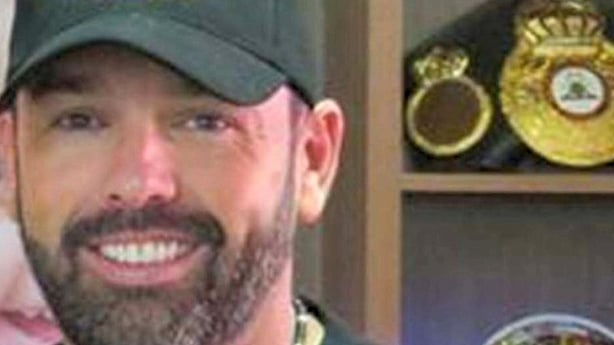
Innocent man
Instead it was the innocent and unsuspecting boxer Jamie Moore who was shot outside Kinahan’s villa in Estepona on 3 August 2014.
Moore had been staying with Daniel Kinahan and training boxers at Kinahan’s MGM gym in Marbella.
He had been out with Kinahan that night but they went home separately. Kinahan arrived first and went in a side gate.
Moore arrived later by taxi and went in the front gate where a gunman was waiting in the bushes.
Five shots were fired at Jamie Moore. He was hit twice and collapsed on the ground. The gunman then walked over to him as he was lying injured.
He was about to fire again but stopped after he appeared to realise he had shot the wrong man.
Daniel Kinahan was the intended target. Gardaí and the Spanish authorities are satisfied that Jamie Moore was an innocent man shot in a case of mistaken identity.
The former European, British and Commonwealth Boxing Champion who also worked for Sky Sports knew he was lucky to survive.
"I'm thankful every day that I'm still here to see my kids grow up," he later tweeted, along with #3 Aug and an emoji of two hands joined together giving thanks.
Moore trains Chantelle Cameron, who will fight Katie Taylor in a world championship bout at the 3 Arena on 20 May.
He has refused to answer questions about his past public support for Daniel Kinahan, whom he described as "a good bloke."
When Kieran Cunningham, a reporter from The Irish Star newspaper asked him about it at a press conference last month, he replied "We're not here to talk about that, we’re here to talk about the fight".
The fight will be the first international professional boxing match to be held in Ireland since David Byrne's murder at the boxing weigh-in at the Regency Hotel.
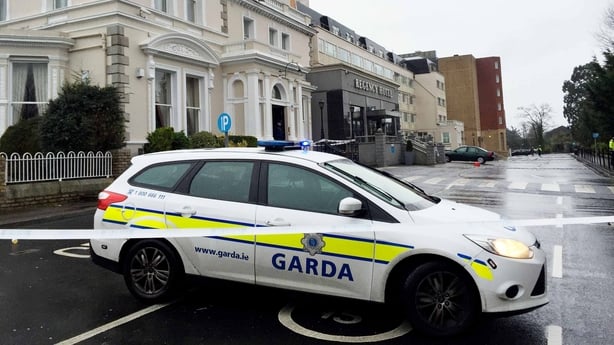
Weigh-in
The weigh-in was run by Daniel Kinahan’s now defunct MGM promotions for 'The Clash of the Clans’ series of fights to take place in Dublin that weekend.
The event never went ahead, MGM became MTK which subsequently collapsed as a result of the US sanctions imposed last year on the Kinahans.
The Regency attack put a stop to all such boxing events in Ireland for the last seven years because of the security risks and danger to life posed by the ongoing feud.
Jonathan Dowdall testified that the Kinahans demanded €200,000 compensation for the previous attempt on Daniel Kinahan’s life in August 2014 and that Patrick Hutch junior be shot as punishment.
Gary, he said, would then be allowed "go his own way."
Dowdall said that Gary was "more or less held hostage" until Daniel Kinahan shot Patrick junior in Drumcondra in Dublin on 15 August 2014.
Patrick was subsequently treated for a gunshot wound to the leg in the Mater Hospital and gardaí later recovered a shell casing from the scene. Patrick refused to co-operate with the investigation.
The Kinahans however reneged on the deal and Gary, who had been living in Spain for eight years, was not allowed 'go his own way.'
He was shot dead at the Angel De Miraflores apartments in Mijas on 24 September 2015.
Kinahan gang member James Quinn from Dublin was subsequently convicted and is serving 20 years in prison in Spain for the murder.
Gerard Hutch was also targeted by the Kinahans. An attempt was made on his life in Lazarotte in the early hours of the 1 January 2016.
He had been out celebrating New Year’s Eve but managed to hide from the gunmen. Two of them are currently serving lengthy jail sentences in Ireland and Spain for other feud murders.
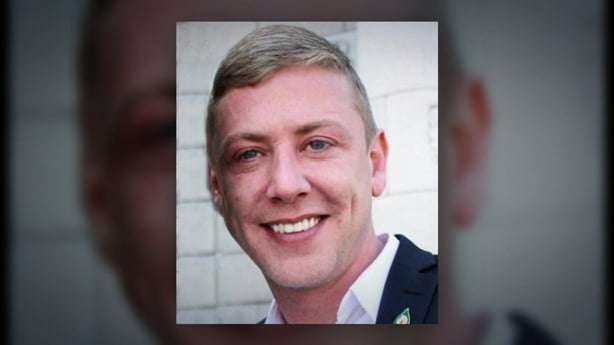
Politics and media
Gerard Hutch was interested in and aware of the power of politics and the media.
When Jonathan Dowdall was criticising Sinn Féin and in particular Mary Lou Mc Donald for not attending Eddie Hutch’s funeral, Hutch was much more guarded and circumspect.
"They try to keep away from dodgy subjects at a dodgy time," Hutch replied to Dowdall, referencing Thomas ‘Slab’ Murphy as a case in point.
"They were in enough shit with the f***in' Special Criminal Court and Slab Murphy."
Thomas ‘Slab’ Murphy was convicted of tax evasion and jailed by the Special Criminal Court the week before in February 2016.
He had previously been described as "a good republican" by Sinn Féin's former party leader Gerry Adams.
Hutch always tried to see the bigger picture. He read the papers, watched the news and listened to current affairs programmes.
His conversations with Jonathan Dowdall stopped in the car journey to and from Northern Ireland when the news came on the radio.
He gave one 'on the record' television interview to RTÉ in 2008 as part of his strategy to portray himself as a man who had settled with the Criminal Assets Bureau.
He also subsequently admitted that he spoke to another journalist eight years later, soon after the murder at the Regency Hotel, to put the Hutch side of the story.
"I talked to that reporter," he said, about "the demand of €200,000. Some of the family had to leave the country."
Nine days after the murder of David Byrne, the Sunday Times published an exclusive story saying the Hutchs had already paid the Kinahans €200,000, but the gang was looking for another €200,000.
The report by Crime Correspondent John Mooney contained a Hutch family statement in which the Hutchs said they were being "terrorised" by the Kinahan drugs cartel.
Gerard Hutch repeated that he and his family were vehemently opposed to drugs and the drugs trade.
"Our family are not involved in any drugs war," the statement said.
"We are well known in the north inner city and have no involvement in drugs.
"Our family are involved in various charitable, religious and sports groups which help young people."
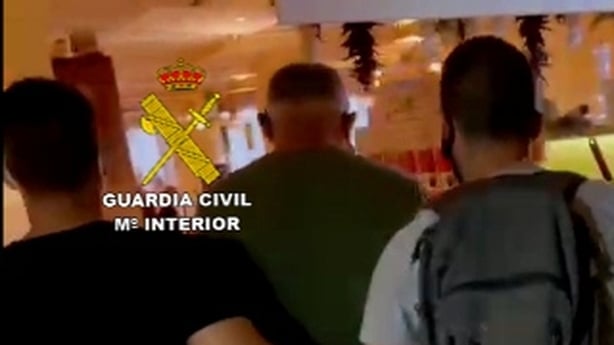
However the Kinahans did not buy that line and by this time anyone remotely connected to the Hutch family was a target.
Gary and Patrick’s father Patsy survived several attempts on his life. Derek "Dell Boy" Hutch was attacked in prison.
And while Gerard Hutch had survived an assassination attempt, his brother Eddie was not so lucky.
The 58-year-old taxi driver was shot dead on 8 February 2016, three days after the murder of David Byrne.
The Hutch family statement claimed Eddie had been murdered after money had been demanded from him a few days earlier.
The gardaí however believe Eddie’s murder was in retaliation for the murder of Kinahan gang member David Byrne.
The funeral of Eddie or 'Neddy’, as he was known, was Gerard Hutch’s last appearance in public before he disappeared for five and a half years. He was arrested in Spain by the Guardia Civil in August 2021.
In spite of his opposition and an application if convicted, to serve his prison sentence in Spain, Hutch was extradited to Dublin to face a trial for murder at the Special Criminal Court.
"Hutch was horrified by the indiscriminate nature of the feud murders"
'There has to be another way'
The unfortunate innocent man who just happened to walk beside Gerard Hutch on the day of Eddie Hutch’s funeral was also subsequently murdered by Kinahan gunmen.
Noel Kirwan was shot dead outside his home in Dublin three days before Christmas 2016. He had no involvement in crime or the feud. He just happened to have been photographed with Gerard Hutch.
Hutch was horrified by the indiscriminate nature of the feud murders. It not only affected him personally, it was also bad for business. The strategy of kill and be killed was in his words "not good."
"There has to be another way," he said, "don't be using a gun all the time. The heartbreak that’s left behind."
Hutch also said that a "lotta people who have been in the game over the years have walked away".
Hutch knew that to stop the killings both sides had to meet to agree a ceasefire.
'Them three yokes'
He therefore needed a mediator who was respected in the criminal underworld and independent of both gangs. He turned to the subversive organization, the so-called New IRA.
In spite of the fact that dissident republicans were by this time acting like another organised crime group, Hutch believed they at least, had some semblance of historical, political or moral authority within the criminal underworld.
This along with the ever present threat of violence associated with them, could he believed, bring the feuding factions to the negotiating table.
Hutch knew the New IRA was not going to intervene out of any sense of social responsibility or concern for the welfare of their fellow citizens.
They would have to be paid and Hutch knew that in the world of the paramilitaries, guns are currency.
Hutch offered the dissidents what the prosecution said were the guns used at the Regency Hotel.
Three AK47 assault rifles which he referred to as "them three yokes."
Hutch also said he had been under pressure after the Regency attack and had to push someone to "get them outta the village".
This, the prosecution said, was a reference to Buckingham Village, the location where the hit team met up on the morning of the David Byrne murder.
Hutch described the use of AK47's by gunmen dressed in fake tactical outfits as "a massive statement." He knew they were not garda issue weapons.
"Anyone with cop on would know immediately the cops don’t use them," he said.
The Regency guns were subsequently handed over to the convicted IRA man Shane Rowan.
Known also by the nickname 'Fish’, Hutch had previously met Rowan in Northern Ireland.
At 7.12pm on 9 March 2016, the gardaí stopped Rowan’s car near Slane in Co Meath and found the guns and ammunition in the boot of his car.
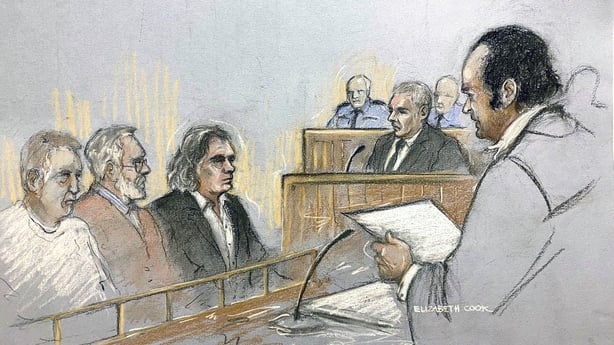
Forensics linked them back to the Regency. An hour and ten minutes later they began a search of Jonathan Dowdall’s home.
Hutch the strategist had already considered the possibility of the guns being seized by the police, but by the PSNI, not the gardaí.
He was conscious that the dissidents could use them for murder and that forensics could connect them to other crimes.
"Twelve months' time," he said, "there’s two RUC men dead there and them things are ballistically traced.
"Any smart copper would be saying it’s a joint yoke."
Suspicion
Suspicion is an occupational necessity in Organised Crime and Hutch was innately suspicious of all sides.
He was well aware of the dangers of the Kinahan Organised Crime Group and while he wanted peace, he also knew he could not trust them.
He could not even send them an emissary because as he put it "the messenger gets it".
But Hutch did not trust the dissidents either.
Even though he had decided to approach them in the hope they would mediate he had also considered the possibility of a double cross.
His fears had not been eased after meeting them in Northern Ireland.
"You wouldn't know with them," he told Jonathan Dowdall on the way home that night. "You know they could be playing both sides of the coin."
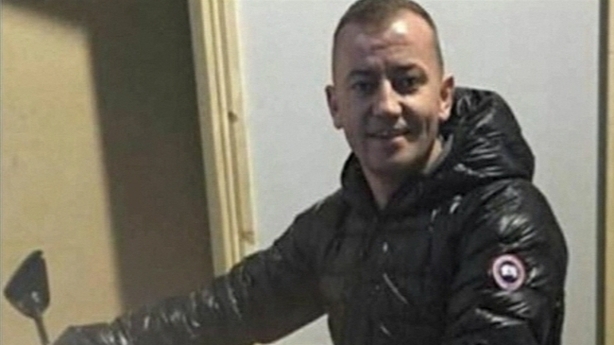
Daniel Kinahan was the target at the Regency attack but Daniel escaped out a back door and David Byrne was shot dead.
Hutch knew afterwards that not only had the attempt on Daniel’s life been botched, there was also not going to be another chance.
He therefore knew he had to tread very carefully and agreed with Dowdall that if he didn’t, it could be "game over" for his "whole f**king family."
"I know," he told Dowdall, "ya have to be careful of these c**ts, their capabilities."
Hutch knew he could not exact revenge for the murder of his brother from those at the top of the Kinahan Organised Crime Group.
Even though the gang had ordered "Neddy" to be shot dead in retaliation for the murder of David Byrne, Hutch knew that Daniel Kinahan, Liam Byrne or Thomas Kavanagh could not be touched.
There would however be no such amnesty for the gang’s dispensable foot soldiers or as he called them, "the f**king hitmen," who carried out the murder.
"I’d like to be able to go out and get these assassins," he said. "The c**ts who done Neddy have to f**king go."
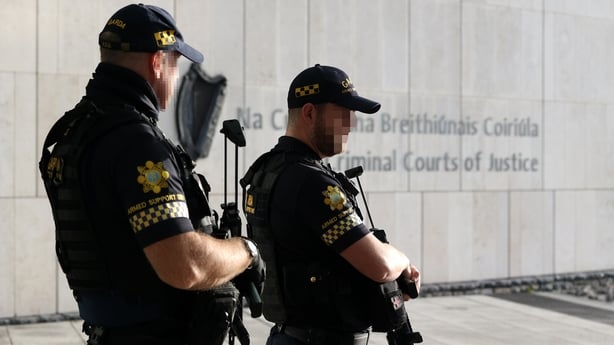
'The shooting has to stop'
Apart from the gunmen, he acknowledged that "the shooting has to stop," and that the IRA "would have to be at the meet."
He knew the Kinahan gang was trying to kill him but dismissed the suggestion of "a million quid" bounty on his head.
"Yeah that's what was said in the paper," he said and laughed, calling himself "the million dollar man".
The funeral of David Byrne had been a show of strength for the Kinahan organisation. It was attended by senior gang members and major crime figures from all over Europe.
In contrast, Hutch did not like to attract such attention. He preferred a more low key approach.
He did not approve of the Kinahans' open and audacious display of power that day.
"Well, it makes them, f*****g showing them what they really are, ya know," he said.
Hutch was right. The funeral did allow the gardaí to identify for the first time, some of the previously unknown central figures in the criminal organisation and it enabled them to pursue them.
'Mr Nobody'
One such individual was Declan Brady.
Known as "Mr Nobody", Brady had been operating under the Garda radar for years. Unbeknownst to them he was the gang's principal armourer and money launderer in Ireland. Brady was pursued and subsequently jailed for gang activity, as was his wife and his brother.
It was not just the gardaí who targeted the gang following the Regency.
The Kinahan Organised Crime Group became the focus of international law enforcement agencies in Europe, the US and Australasia.
The Spanish authorities renewed their investigations and put so much pressure on the gang that it was forced to move its operations to the Middle East.
Christy Kinahan senior, Daniel and Christopher junior left the Costa del Sol and moved to Dubai along with other senior gang members including Bernard Clancy, Ian Dixon and Sean McGovern.
They have all since been named on the US sanctions list.
McGovern who was also shot and injured at the Regency Hotel was last seen in Ireland in February 2016. He is now wanted for murder.
Hutch also knew in 2016 that the National Crime Agency in the UK had taken a keen interest in the Kinahan Organised Crime Group.
"The English are all over them a long time," he said "and what you read in the papers, they're not far off."
Again, the comment was prescient as Hutch was later proved correct.
Thomas’ Bomber’ Kavanagh, Liam Byrne’s brother-in-law and the leader of the gang in the UK was caught for drug dealing and moneylaundering and is currently serving 21 years in prison.
Two other Kinahan gang members, Daniel Canning from Walkinstown and his brother-in-law Gary Vickery were also jailed as a result of the same investigation and are serving 19 and 20 years respectively.
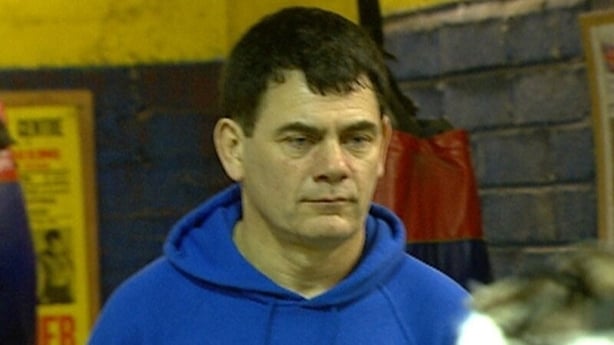
So even though members of his family were being shot and killed in 2016, Hutch knew the feud was also affecting the Kinahan gang’s drugs and moneylaundering business.
War is never good for business and Hutch believed Daniel Kinahan would therefore agree to a meeting with the dissidents in England to discuss peace.
"I'd say he'll meet them in London," he said.
"It’ll suit Kinahan. Get a meeting. Sit down. We’ll have peace. I’d want them standing at it. We’ll have to. It’s the best option or go to war."
Hutch 's approach was not personal, but businesslike and professional.
He didn’t want any discussion about the past or admissions from anyone at the meeting.
He did not want to get involved in any blame game or talk about who did what or when to whom. He simply wanted to stop the violence and move on.
"I don't want to go into any of that," Hutch said. "We don’t want him (Daniel Kinahan) telling us he didn’t do Gary (a reference to the murder of his nephew in Spain). We’re not looking for admittance off anybody."
Hutch was aware of the urgency of the situation, the murderous tit for tat nature of the feud. He knew how important it was to make peace now before it was too late.
"I don’t want anyone else getting injured," he said. "I’d like it put to bed. I believe whatever happens, something else happens, just stay a-f**king-live in the meantime."
Hutch also realised that his family needed someone of stature to officiate, someone comparable to the former Sinn Féin president.
"Try to get someone in the middle," he said, "Gerry Adams. Someone they won’t act the b****x with, I don’t mean Gerry Adams, someone."
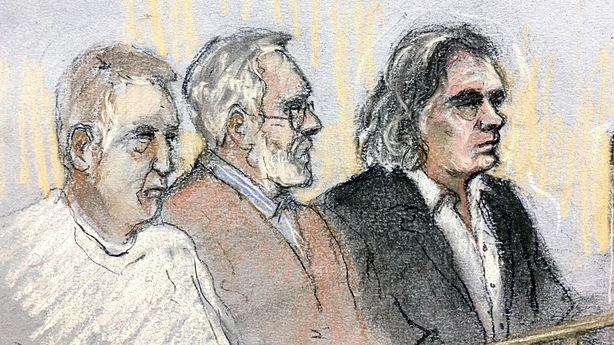
Hutch also displayed a certain amount of emotional intelligence.
He empathised with Daniel Kinahan because of the impact the attempt on his life would have had on him.
He pointed out that Kinahan looked "in a f**king heap in the photographs I’ve seen of him in the paper."
He even admitted that if he had been the target of the Regency gunmen, he too would look as bad as Kinahan.
"I'd be like that if some c**t came running in with an AK-47 and I got out by the skin of my f**king teeth", he said, adding that if Kinahan was not in "an awful way, ya'd (you would) say he's totally disturbed".
A month after the murder of David Byrne, Hutch didn’t have much confidence in the ability of the gardaí to solve the crime.
"The cops are going around like headless chickens," he said, "loads of f**k ups have been made."
Hutch was convinced they didn't know who the six gunmen at the Regency were.
"They don’t know, sure the f**king six people don’t even know. No one f**king knows," he said.
He described reports in the newspapers that the gunmen had been identified as "all speculation, apart from the man and the woman".
This was a reference to the photograph of two of the gunmen published in the Sunday World newspaper.
One of them was the late dissident republican Kevin 'Flat Cap’ Murray whom the Dowdall’s had booked a room for in the Regency the night before the murder.
Dowdall also said the key card for the room was handed over to Gerard Hutch.
Dowdall told the murder trial that the other person in the photograph, the man dressed as a woman, was Patrick Hutch, Patsy Hutch’s son and Gerry Hutch’s nephew.
Patrick junior was charged with murder but was not convicted at the Special Criminal Court.
The state entered a ‘nolle prosecui" when the trial collapsed in February 2019 after a senior investigating officer took his own life in Ballymun Garda Station.
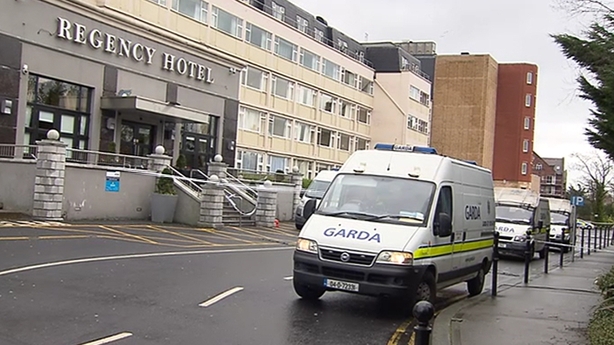
Hutch knew the gardaí were investigating him in connection with the Regency murder. He was under surveillance and knew they were watching him.
"They seen me at the funeral," he said, "they were at the airport outside the plane waiting for me and they haven't seen me since."
He was not there when they searched his home.
"I’d say they weren't expecting me to be there, ya know," he said.
"They'll try all the avenues, I don't think they have that much to go on."
He was however wrong about that. It transpired they had enough to bring him to trial.
The gardaí had been gathering evidence and ultimately had enough to present to the Director of Public Prosecutions who directed that Gerard Hutch be charged with the murder of David Byrne.
The DPP made that decision even before Jonathan Dowdall came forward and made a statement incriminating his former friend and agreeing to testify against him in court.
Hutch was extradited from Spain and spent over a year and a half in custody.
But ultimately, Hutch was proven correct in that they didn’t have "that much" and certainly not enough to convict him.
On 17 April 2023 he walked out of the Special Criminal Court a free man.






